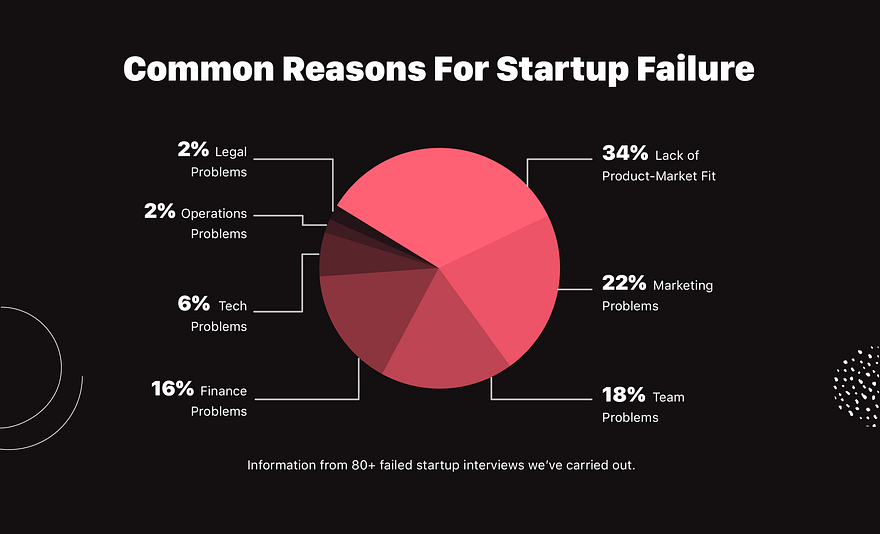The essential ingredients for startup success

There are many reasons why startups fail. Some common reasons include lack of market need for the product or service, inadequate funding, lack of a viable business model, poor execution, and competition.
Startups often face significant challenges, including the need to quickly gain traction and generate revenue in a crowded and competitive market. Many startups are also operating in high-risk industries, such as technology and biotechnology, where the potential rewards can be high but the risks of failure are also significant.
In addition, many startups are founded by entrepreneurs who are inexperienced in starting and running businesses. This can lead to mistakes and poor decision-making, which can contribute to the failure of the startup.
Overall, the high failure rate among startups is a reflection of the inherent risks and challenges of starting and growing a business in a competitive market. While some startups are able to overcome these challenges and achieve success, many others are not able to do so, and they end up failing.
How to overcome the odds and succeed as a startup
There is no one-size-fits-all solution for ensuring the success of a startup. However, there are some key steps that startups can take to increase their chances of success, such as:
- Identify a clear problem or need in the market and develop a product or service that addresses that need in a unique and compelling way.
- Conduct thorough market research and validation to ensure that there is a viable market for the product or service, and that the product or service is differentiated from competitors.
- Develop a solid business plan that outlines the key components of the business, including the target market, revenue model, and go-to-market strategy.
- Secure sufficient funding to support the startup’s growth and operations. This may involve raising capital from investors, applying for grants or loans, or generating revenue through early customers.
- Build a strong team with the skills, experience, and expertise needed to execute on the startup’s vision and goals.
- Focus on execution and delivering value to customers. This may involve iterating on the product or service based on customer feedback, testing and refining the business model, and continuously improving operations.
By following these steps and being mindful of the challenges and risks that startups face, founders can increase the chances of success for their startup. It is important to remember that starting a successful business is difficult and that failure is common, but with the right approach and mindset, startups can overcome these challenges and achieve success.





0 Comments